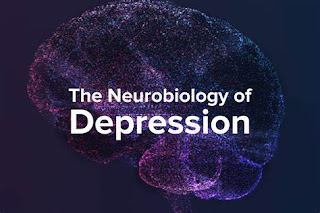what are depression, anxiety, and stress
what are depression, anxiety, and stress
Depression, anxiety, and stress are common mental health conditions that can affect anyone at any age. They can have a variety of causes and can manifest in different ways, but they all involve changes in mood, thoughts, behavior, and physical symptoms.
Depression is a mental health disorder characterized by persistent feelings of sadness, hopelessness, and a lack of interest in activities that a person used to enjoy. It can also cause physical symptoms such as fatigue, changes in appetite and sleep patterns, and difficulty concentrating. Depression can be caused by a variety of factors, including genetics, life events, and underlying medical conditions.
Anxiety is a normal response to stress or danger, but it can become a problem when it persists or interferes with daily life. Anxiety disorders are characterized by excessive and irrational fear or worry, and can manifest in a variety of ways, including generalized anxiety disorder, panic disorder, and phobias. Like depression, anxiety can be caused by a combination of genetic, environmental, and psychological factors.
Stress is the body's response to demands or challenges, and it can be physical, emotional, or mental. Short-term stress can be beneficial, as it can motivate and energize a person to meet a deadline or perform a task. But chronic stress can have negative effects on both physical and mental health, including fatigue, irritability, and difficulty concentrating. Stress can be caused by a variety of factors, including work, relationships, and personal issues.
There are several ways to recover from depression, anxiety, and stress, including:
- Seeking professional help: A mental health professional, such as a psychologist or psychiatrist, can help you identify the cause of your symptoms and develop a treatment plan.
- Using self-care techniques: Self-care strategies, such as exercise, relaxation techniques, and getting enough sleep, can help manage stress and improve mood.
- Connecting with others: Building a support system of friends and family can provide emotional support and help you feel less alone.
- Changing negative thinking patterns: Cognitive-behavioral therapy (CBT) can help you identify and change negative thought patterns that contribute to anxiety and depression.
- Medications: In some cases, medication can be helpful in managing symptoms of depression, anxiety, and stress. It's important to work with a healthcare professional to find the right medication and dosage for you.
It's important to remember that recovery from depression, anxiety, and stress is possible, and it's okay to ask for help if you need it. Don't be afraid to reach out to a mental health professional or loved one for support.











Comments
Post a Comment